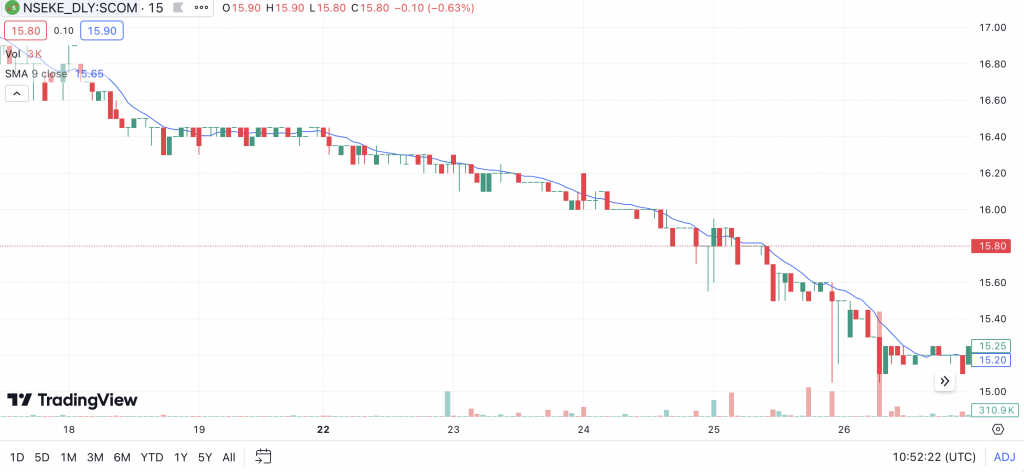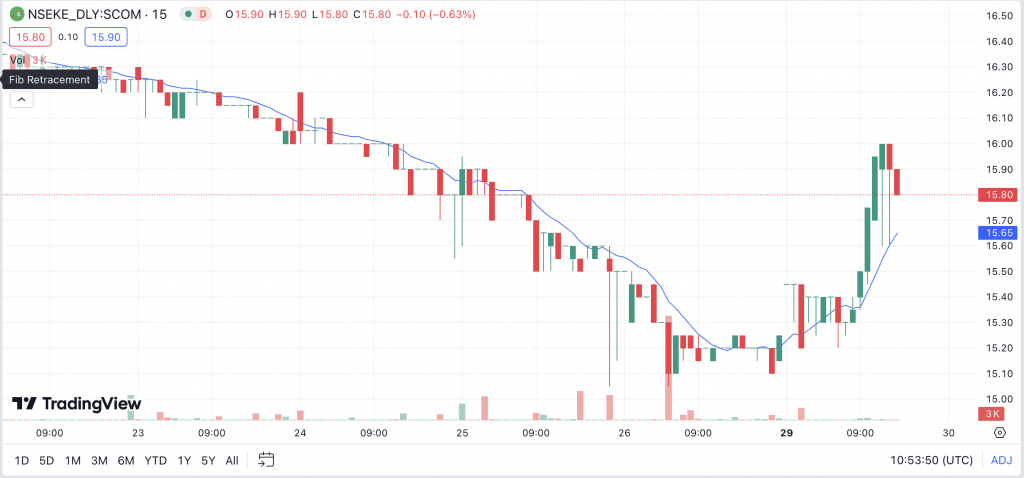Day Trading in Kenya



As a leader among the emerging economies of Sub-Saharan Africa, Kenya offers day traders opportunities, from key export commodities like coffee to shares in thriving companies such as East African Breweries.
The Nairobi Securities Exchange (NSE) is the largest stock exchange in East Africa and one of the fastest growing on the continent with a market capitalization of around USD 12.5 billion.
Kenya’s financial markets are regulated by the Capital Markets Authority (CMA), which aims to promote market integrity and investor confidence by monitoring for regulatory compliance and enforcing laws.
Our guide unpacks everything you need to start day trading in Kenya.
Quick Introduction
- Kenya is the seventh largest economy on the African continent and the biggest in East Africa with a GDP of USD 104 billion and thriving agriculture, tourism and manufacturing sectors, providing short-term trading opportunities.
- The Capital Markets Authority (CMA) is a ‘yellow-tier’ regulator in line with DayTrading.com’s Regulation & Trust Rating, providing fairly strong oversight and protections for retail traders.
- Profits from day trading are generally counted toward your personal income for tax purposes by the Kenya Revenue Authority (KRA), meaning you could pay 10% to 35%.
Top 4 Brokers In Kenya
Based on our in-depth tests, these 4 platforms are a cut above the rest for active Kenyan traders:
All Day Trading Platforms in Kenya
What Is Day Trading?
Day trading involves opening and closing trading positions on instruments like stocks and derivatives (CFD trading in Kenya is very popular) within a single day. The aim is to profit from short-term price movements without incurring fees for keeping trades open overnight.
Short-term traders benefit from a wide range of tradable instruments associated with the country, including shares in companies listed on the Nairobi Securities Exchange, such as telecom giant Safaricom and coffee and tea producer Sasini.
Besides the soft commodities from Kenya’s large agricultural sector, other prominent local commodities include minerals such as gold.
Forex trading in Kenya is also a huge market. Yet while the Kenyan shilling (KES) is an important regional currency, it is not often available to trade at Kenyan forex brokers, so you might wish to look for platforms with popular African currencies like the South African rand (ZAR).
Is Day Trading Legal In Kenya?
Kenya has a market-based economy and there are no restrictions on day trading, though you should be careful to learn and follow the country’s regulations regarding fair trading practices.
The main regulator overseeing financial markets in Kenya is the Capital Markets Authority, while the Central Bank sets monetary policy and regulates, licences and oversees many of the country’s financial institutions.
We consider the CMA a ‘yellow-tier’ regulator due to its relatively effective oversight of the financial markets. It helps protect traders from scams and unscrupulous platforms, such as the 40 unlicensed brokers that the CMA cracked down on.Still, it is not a top-tier regulator, so you may prefer to sign up with a trusted broker like the ones featured on our top trading platforms in Kenya.
How Is Day Trading Taxed In Kenya?
Profits from day trading are typically counted as regular income by the Kenya Revenue Authority (KRA), so most individual traders will pay between 10% and 35% of any profits depending on their total income.
A withholding tax rate of 15% was also introduced in 2023 and is levied on derivative contracts accrued to non-residents. This may affect active investors outside Kenya who trade Kenyan assets, including forex pairs with KES, or traders in Kenya who trade with foreign counterparties.
The financial year in Kenya is a standard calendar year, and the deadline for submitting self-assessed tax returns is 30 June.
Getting Started
Follow these simple steps to find your feet day trading in Kenya:
- Choose a broker: The best brokers for day traders in Kenya offer trading on diverse instruments with competitive pricing. Although the CMA is a relatively trusted regulator, Kenyans are also free to sign up with overseas trading platforms regulated by ‘green-tier’ bodies like the ASIC in Australia and FCA in the UK.
- Set up an account: It is relatively quick and easy to register with an online broker as long as you have proof of address and valid identification, such as a Kenyan National ID. In our experience, you’re usually up and running within 48 hours.
- Fund your account: Choose a platform with account funding options that work for you, such as Kenya’s favorite mobile money platform, M-Pesa. Alternatively, most firms accept debit cards and wire transfers.
A Trade In Action
Let’s see how a short-term trade could work in Kenya…
I want to speculate on telecommunications giant Safaricom, Kenya’s largest company by market capitalization and the owner of key brands including M-Pesa.
Having watched Safaricom’s price gradually decline over several weeks amid political unrest in Kenya, I’m willing to take a risk on Monday morning after news that the president has changed his cabinet to appease protesters.
This is a risky play for several reasons: I’m assuming that Safaricom’s price decrease is directly tied to the political unrest, and I’m assuming that investors will share my view that the news could quell the protests.

As a result, I want to wait for the markets to open to observe how the price reacts before I make my play. The price gaps up from KES 15.15 to KES 15.45 on market open, and I’m willing to bet that interest in this stock will remain high. I plan for the gap to close by setting a limit buy order at KES 15.18.
Since this is a risky trade, I set a tight stop loss order at 15.10, the lowest price the stock reached on Friday. I set my take profit order at 15.65, hoping to capitalize on my expectation that the latest news will trigger a reversal in the downward trend of recent weeks.

My order is quickly filled when the gap closes downwards around 9 AM (EAT). The price action remains choppy for the next two hours, before beginning to climb at 11 AM.
It rockets past my take profit order at midday, netting me a handsome profit of KES0.45 per share.
Bottom Line
Kenya’s thriving economy within the African continent, regulatory oversight from the CMA, and increasing financial literacy are creating a budding class of aspiring traders.
To get started, use our selection of the top day trading brokers in Kenya.
Recommended Reading
Article Sources
- Central Bank of Kenya
- Capital Markets Authority
- Nairobi Securities Exchange
- Kenya Revenue Authority
- Business Daily Africa
The writing and editorial team at DayTrading.com use credible sources to support their work. These include government agencies, white papers, research institutes, and engagement with industry professionals. Content is written free from bias and is fact-checked where appropriate. Learn more about why you can trust DayTrading.com



